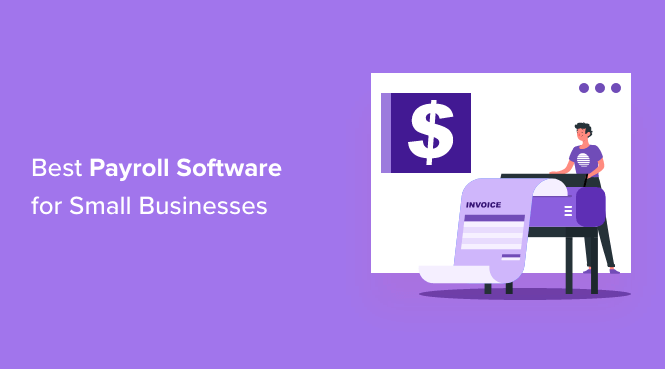Accurate cost estimation is the backbone of any successful construction project. Whether you're working on a small renovation or a large-scale development, having the right construction estimating software for small business can make a significant difference in your ability to budget effectively, reduce errors, and streamline your workflow. As the construction industry evolves, software tools are becoming more advanced, offering innovative solutions to meet the needs of construction companies of all sizes. In this article, we’ll explore the best construction estimating software of 2025, and how these tools can help improve efficiency and profitability for small businesses.
Discover the Best Construction Estimating Software of 2025

Why Is Construction Estimating Software Important?
For construction companies, accurate estimates are vital for managing resources, timelines, and costs. Without the proper tools, estimating can become a time-consuming and error-prone process. This is where construction estimating software for small business comes in. These tools automate many aspects of the estimating process, allowing construction professionals to:
- Save time by automating calculations, material costs, and labor estimates.
- Improve accuracy by reducing human error and providing up-to-date pricing information.
- Enhance project management by integrating with other tools like project management software and accounting software.
- Increase profitability by providing insights into cost trends and areas where savings can be made.
By adopting the best construction estimating software, small businesses can ensure they stay competitive, streamline operations, and improve their financial outcomes.
Key Features to Look for in Construction Estimating Software
When selecting construction estimating software for small business, there are several key features to consider:
- Ease of Use: The software should be intuitive and easy to use, even for those without a technical background. A steep learning curve can slow down your operations and hinder adoption by your team.
- Accuracy and Reliability: Accurate cost estimation is critical. The software should provide reliable pricing based on industry standards and offer robust features for labor, material, and equipment cost breakdowns.
- Cloud-Based Accessibility: Many modern estimating tools are cloud-based, allowing you to access your data from anywhere, collaborate with team members, and update estimates in real time.
- Integration with Other Tools: Good estimating software should integrate with other essential software tools such as project management software, accounting systems, and scheduling tools to ensure a seamless workflow.
- Customization: The software should allow for customization to suit your business's specific needs, including the ability to adjust for local pricing, project types, and business processes.
- Cost-Effective: Small businesses need to balance the benefits of the software with its cost. Look for a tool that offers good value for money while delivering the essential features you need.
Top Construction Estimating Software for Small Business in 2025
To help you choose the best construction estimating software, we’ve compared some of the top options available in 2025. Each software option has its own unique strengths, so depending on your business needs, one may be a better fit than the others.
Here’s a comparison chart of the best construction estimating software for small businesses:
| Software | Price Range (Annual) | Key Features | Ease of Use | Best For | Customer Rating |
|---|---|---|---|---|---|
| ProEst | $250 - $1,200 | Cloud-based, customizable, integrates with accounting and project management | Easy | Small to medium construction businesses | 4.8/5 |
| Buildertrend | $400 - $1,800 | Estimating, scheduling, project management integration, mobile access | Easy to moderate | Contractors looking for full project management tools | 4.7/5 |
| Estimator 360 | $99 - $499 | Material and labor cost breakdown, cloud-based, customizable templates | Easy | Small businesses and independent contractors | 4.6/5 |
| Clear Estimates | $300 - $550 | Pre-configured cost databases, customizable reports, easy to use | Easy | Renovation and remodeling contractors | 4.5/5 |
| Sage Estimating | $1,500 - $5,000 | Advanced features, integrates with Sage accounting, robust reporting | Moderate to difficult | Larger contractors or businesses with complex projects | 4.4/5 |
Detailed Overview of the Top Construction Estimating Software
1. ProEst
ProEst is a highly-rated cloud-based construction estimating software for small business that offers an all-in-one solution for estimating, budgeting, and project management. It integrates seamlessly with accounting tools like QuickBooks and project management software such as Buildertrend. Its cloud-based nature ensures accessibility from anywhere, which is a major plus for construction teams working in the field. The software is known for its ease of use and highly customizable templates, which can be tailored to fit different types of projects.
2. Buildertrend
Buildertrend is a popular tool among contractors who need both estimating and project management capabilities. It combines estimating features with scheduling, job costing, and customer communication tools. This integration makes it a comprehensive solution for small businesses that manage a variety of tasks, from client communication to project timelines. Buildertrend offers a mobile app, making it easy for construction teams to work from the field.
3. Estimator 360
Estimator 360 is an affordable and easy-to-use construction estimating software designed for small businesses and independent contractors. It offers comprehensive material and labor cost breakdowns, allowing users to generate accurate estimates quickly. The cloud-based platform ensures that your data is always accessible and secure. Customizable templates make it easy to adapt the software to your specific needs, whether you're working on a residential or commercial project.
4. Clear Estimates
Clear Estimates is ideal for renovation and remodeling contractors. It provides pre-configured cost databases, which makes generating estimates for specific types of projects easier. The software also allows for customizable reports and invoices, ensuring you can present estimates professionally to clients. Clear Estimates is known for its user-friendly interface and straightforward setup, making it a great choice for smaller businesses with limited resources.
5. Sage Estimating
Sage Estimating is a powerful and robust solution designed for larger construction companies or businesses handling complex projects. While it may have a steeper learning curve, it offers extensive features such as advanced reporting and integration with Sage accounting software. Its comprehensive capabilities make it an ideal choice for businesses with more intricate estimating needs, but it may not be necessary for smaller construction operations.
Conclusion
Choosing the right construction estimating software for small business can significantly improve the efficiency and accuracy of your cost estimation processes. As we’ve seen, there are many excellent options to choose from in 2025, each offering unique features tailored to different business needs. For small businesses looking for an intuitive and affordable solution, software like ProEst, Estimator 360, or Clear Estimates may be the best fit. Larger businesses with more complex needs might find that Sage Estimating provides the advanced features they require.
No matter the size of your business, investing in the best construction estimating software will help ensure that your projects stay on budget, reduce errors, and increase your profitability.
Explore

Best Construction Management Software of 2025

Discover the Best Financial Software for Small Business and Personal Use in 2025

Discover the Best Medical Scheduling Software of 2025

Discover the Best Payroll Software in the UK for 2025

Discover the Best Small Businesses Loans 2025

Discover the Best Business Email Accounts for 2025

Discover the Top Dog Food Delivery Services of 2025

Smooth Sailing: Discover the Top Boat Insurance Options for 2025
